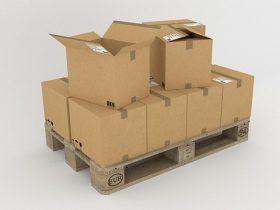Why is it important to keep track of meeting minutes? Aside from the obvious reasons, the minutes can also set a clear plan, clarify decision-making processes, and map out action items. And, if you have a team and you can’t always be present at meetings, the minutes can provide important information to those who were not at the meeting. In addition to these apparent benefits, meeting minutes can also be an essential source of peace of mind for the person or people who took notes.
Establishes accountability
Maintaining meeting minutes is essential for several reasons. First, keeping the minutes allows you to ensure that everyone has been fully informed of what was discussed at the meeting. Second, it establishes accountability, and that is what you’re after. Keep minutes updated regularly. Even better, distribute them to all team members. Make sure to follow up on them to see if you brought up a new business and if you took action.
In addition to helping others understand the purpose of the meeting, minutes are an excellent way to establish accountability. Meeting minutes should explain the forum’s purpose and outcome and the next steps. They should be brief and concise, highlighting important points, action items, and opportunities. You should write meeting minutes in a clear and concise style that allows any stakeholder to skim through them and understand how they can contribute quickly. If you want to establish accountability by keeping meeting minutes, you can include critical decisions and how you reached them.
Establishes intent
When writing meeting minutes, the order of items is essential. Articles for other committees may be grouped under the same heading. You can also use meeting minutes templates. The Executive Officer can identify these items quickly. If an item is controversial, the minutes should be clear about the discussion’s outcome. Incorrect tenses or other formatting problems are not a disaster. However, following the proper citation rules is vital when writing meeting minutes. Include action items. The minutes should be concise and avoid repetition. The order of the minutes should follow the agenda, with an itemized introductory summary sentence for each item. For meetings with multiple attendees, it is helpful to list the names of those present. In the same way, if the meeting involved a public presentation, the minutes should include the speaker’s name. The host must be clear on the meeting’s intent and format.
Provides peace of mind for minute takers
The role of a minute taker is vital in a range of organizations. Charities, social enterprises, committees, and, more often than not, governing bodies all require minute taking. Most will set out their requirements for a meeting and its documentation, and using an impartial minute taker ensures that all aspects of the discussion are correctly recorded. This, in turn, provides peace of mind for the minute taker and enables them to concentrate on recording the conversations and actions.
A good minute taker should keep the meeting’s agenda simple and concise. Using an agenda template and an outline allows them to capture the minutes accurately while leaving ample space for handwritten notes. A good minute taker should include the name of each person attending the meeting, their job title, and any announcements you may have made during the session. In addition, the minute taker should be aware of the meeting’s agenda, including the time and place of the meeting.







